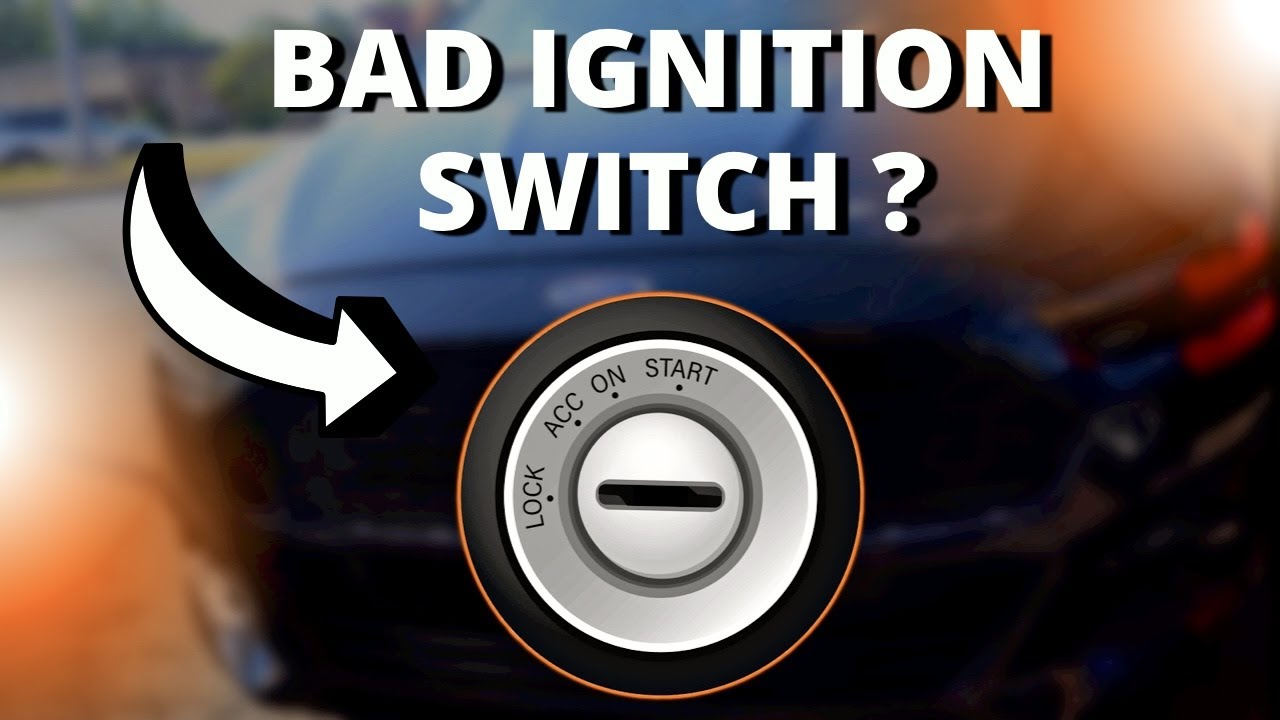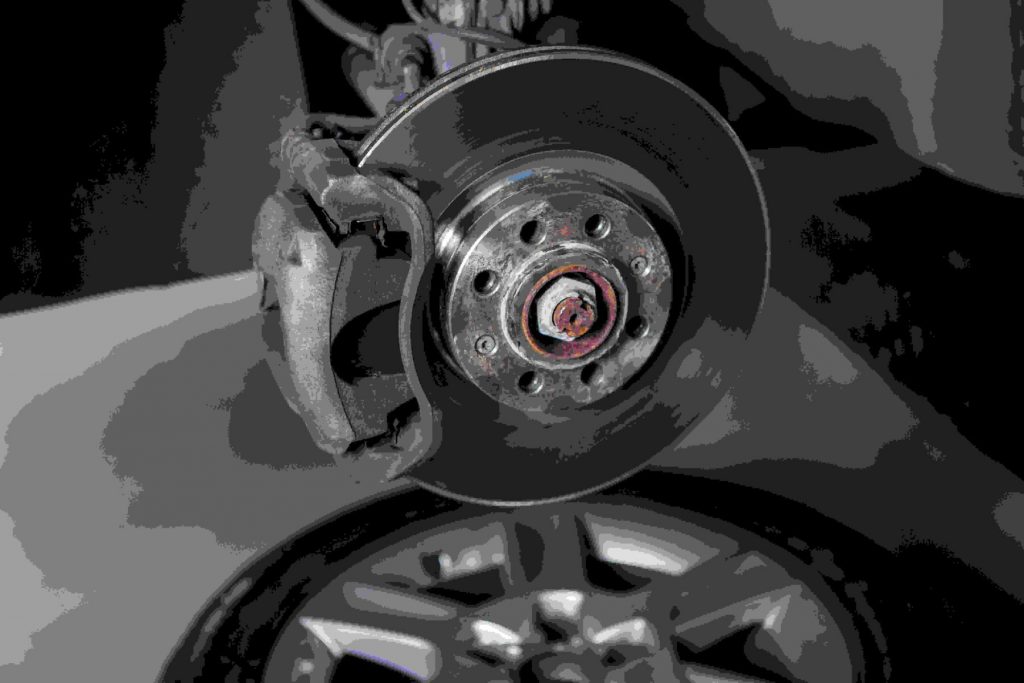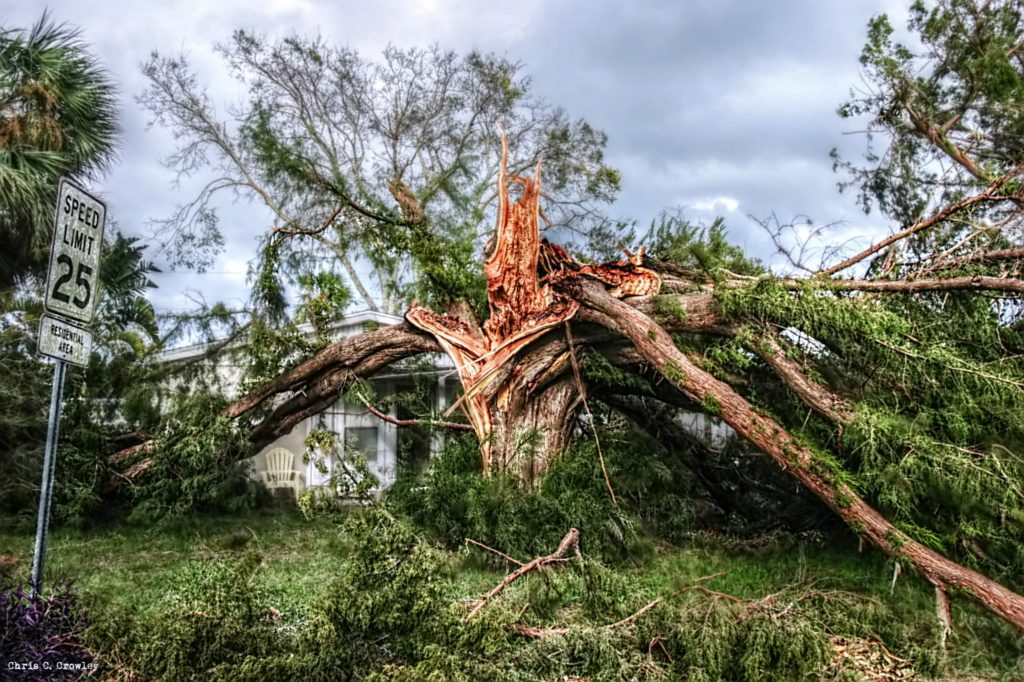Imagine getting into your car on a hot Sharjah afternoon, turning the key, and nothing happens – no crank, no start. Or perhaps the engine fires up but dies moments later, leaving you stranded in traffic. These scenarios often point to a bad ignition switch. The ignition switch is the electrical component behind your key cylinder that powers most of your vehicle’s systems and the starter motor. When it fails, we at Burj Malabar Auto Maintenance know from experience that your car can become completely unresponsive. In the Sharjah climate – with extreme heat and dust – ignition switch problems can be especially common, as heat-related wear is one of the causes of failure. In this article, we’ll explain the signs and symptoms of a bad ignition switch, how it can lead to starter problems, and how to tell these issues apart from other starting troubles.
Signs and Symptoms of a Bad Ignition Switch
A failing ignition switch often produces a few tell-tale symptoms. If you notice any of the following issues, your ignition switch may be to blame:
- Key is hard to turn: You might find the key difficult or impossible to rotate in the ignition. This could indicate the ignition lock cylinder or the switch mechanism is jammed or worn. Many Sharjah drivers initially dismiss a sticky key, but it can be an early sign of switch trouble.
- Engine won’t crank: Turning the key to the start position and getting no response (no engine cranking at all) is a classic symptom. If the switch’s internal electrical contacts fail, it may not send power to the starter motor, resulting in silence when you turn the key. (Do make sure the battery isn’t dead – more on that later.)
- Engine starts then stalls: Sometimes a bad ignition switch allows the car to start, but the engine quickly sputters and stops. This can happen if the switch fails in the “run” position or if an anti-theft immobilizer cuts off fuel/ignition because it doesn’t recognize the key. The car essentially loses power right after ignition.
- No power to accessories: You might notice that when the key is in the “ON” position, certain electronics (radio, A/C, dashboard lights, etc.) don’t work. A faulty ignition switch may not be powering the accessory circuits, so those features stay dead. For example, you turn the key and none of the usual warning lights or chimes come on – a bad sign for the switch.
- Stalling while driving: One of the more dangerous symptoms is the engine stalling on the road. A worn ignition switch can momentarily lose contact (especially if jolted by a bump or vibration), shutting off the engine as if you turned the key off. In traffic, this is not only frustrating but also hazardous.
- Intermittent issues: Ignition switch problems often start out intermittent. You might have a car that fails to start only occasionally or an accessory that works only sometimes. Over time, these incidents usually become more frequent. Consistent patterns (e.g., always failing when hot outside or after a long drive) can also hint at an ignition switch issue, since heat can cause marginal switches to fail more often.
These symptoms can be tricky to diagnose because they overlap with other problems. Next, we’ll look at how a faulty ignition switch specifically affects the starter, and how to distinguish an ignition switch failure from other common starting issues.
How a Faulty Ignition Switch Causes Starter Problems
One of the primary jobs of the ignition switch is to send power to the starter relay and motor when you turn the key to “Start”. If the switch isn’t working correctly, it may prevent the starter from engaging. From our experience servicing vehicles in Sharjah, we often see that what drivers assume is a bad starter is sometimes actually an ignition switch problem. Here’s how a bad ignition switch can mimic starter troubles:
- Silent starter motor: When you turn the key and you get absolute silence – no click and no cranking – a bad ignition switch is a likely culprit. The starter isn’t receiving power at all. An important clue is that your dashboard lights and electrical accessories might still come on (indicating the battery has power), but the engine won’t crank. If the starter itself were bad, you would usually hear at least a click sound. In fact, a “silent” starter with no noise can indicate a bad ignition switch, whereas any clicking noise usually points to a different issue.
- Intermittent no-start: A failing ignition switch often works sporadically. You might turn the key and get no response, but then on a second or third try the car starts normally. This intermittent behavior is a hallmark of ignition switch issues. In contrast, a truly bad starter motor or a dead battery tends to fail consistently until repaired.
- Starter engages then immediately stops: In some cases, the starter might crank the engine for a second and then stop, coinciding with the engine starting then stalling symptom mentioned earlier. This could happen if the ignition switch cuts out power to the engine controls right after the car starts. Essentially, the starter did its job, but the ignition switch didn’t maintain power to keep the engine running.
It’s important to note that not every starting problem is the ignition switch. For instance, if you hear a rapid clicking when trying to start, that usually means the battery is weak, not necessarily that the switch is bad. Similarly, one single click when you turn the key often points to the starter solenoid or starter motor issue. The table below compares ignition switch failure with starter and battery problems, so you can spot the differences:
Comparing Ignition Switch Failure with Other Starting Issues
To troubleshoot a no-start scenario, it helps to compare symptoms of a bad ignition switch versus a bad starter motor versus a dead battery:
| Situation | Bad Ignition Switch | Bad Starter Motor | Dead Battery |
|---|---|---|---|
| Turn key – no response (no crank, no click) | Yes – Likely cause. The starter gets no power at all, resulting in silence. (Dash lights still illuminate since battery and other circuits work.) | Possible – If the starter/solenoid completely failed, it might do nothing, but often there is at least a clicking noise. | No – Not in this exact scenario. A dead battery would also leave your dash dark; if lights are on, the battery isn’t totally dead. |
| Turn key – clicking noises or dim lights | No – A failing ignition switch alone won’t cause clicks; clicking means the starter is receiving power. | Yes – A common sign. Often a single loud click occurs if the starter motor or solenoid is bad. (Power is present but starter can’t turn the engine.) | Yes – Very likely. Rapid clicking and/or lights dimming when you turn the key are classic signs of a weak or dead battery. The starter isn’t getting enough power to crank. |
| Engine starts but immediately stalls | Yes – Possible. The ignition switch may be cutting out, so the engine loses ignition or fuel right after starting (or an anti-theft system is shutting it down). | No – The starter did its job if the engine started. A starter problem won’t cause stalling after the engine is running. | No – If the engine managed to start, the battery had enough power. A battery doesn’t cause a stall right after start (unless the alternator is bad, which is another issue). |
| Car stalls while driving | Yes – A worn ignition switch can lose electrical contact due to vibration/bumps, turning the car off as if you removed the key. This can happen at random times, which is dangerous in traffic. | No – Once the engine is running, the starter motor is not in use. A bad starter won’t cause the engine to die while driving. | Unlikely – A sudden stall from battery failure alone is rare. (Typically the alternator would have to fail; otherwise the engine can run from alternator power even if the battery is weak.) |
| Key is difficult to turn | Yes – Could indicate the ignition switch or lock cylinder is worn or jammed, a precursor to switch failure. Jiggling the key might temporarily help, but that’s a red flag. | No – The starter has no relation to the key mechanism. | No – Battery condition doesn’t affect the mechanical turning of the key. |
| No accessory power when key is ON (e.g. radio, interior lights dead) | Yes – Likely. A bad ignition switch may fail to send power to accessory circuits, so nothing works even though the battery is fine. (Headlights might still work since they often bypass the ignition switch.) | No – A bad starter doesn’t affect accessory electronics. | Yes – Also possible. A fully dead battery means no power to any electrical component. The difference is that with battery failure, all electronics (including headlights) will be off, not just the ignition-controlled circuits. |
As you can see, a faulty ignition switch shares some symptoms with a bad starter or battery, but there are key differences. For example, if you turn the key and hear nothing at all, yet your dash lights come on, the ignition switch is a prime suspect. If you hear rapid clicking and everything dims, the battery is likely at fault. And if you get a single solid click but no crank, the starter motor or its solenoid might be the issue. It often takes a trained eye to pinpoint the exact cause. In our Sharjah garage, we use systematic diagnostics – checking the battery, then the starter, then the ignition switch circuit – to identify the problem quickly.
Dealing with Ignition Switch Problems
A bad ignition switch can be more than just a nuisance – it can leave you stranded or even cause your car to stall in dangerous situations. The best course of action if you suspect an ignition switch issue is to get it diagnosed and repaired promptly. Modern vehicles have complex ignition systems (many tied into anti-theft immobilizers and steering lock mechanisms), so replacing an ignition switch isn’t always a simple DIY job. In fact, installing a new ignition switch incorrectly can interfere with safety systems; for example, improper replacement might prevent airbags from deploying or accidentally trigger them. For your safety and peace of mind, we recommend having a certified mechanic handle the repair.
At Burj Malabar Auto Maintenance, we’ve helped many Sharjah drivers resolve ignition switch problems and starter issues. Our experienced technicians will ensure that the true cause of your starting trouble is identified – be it the switch, starter, battery, or something else – and fix it efficiently. To prevent ignition switch failures, a couple of simple tips can help: avoid having a heavy, dangling keychain that puts strain on the ignition switch, and try not to repeatedly turn the key on and off more than necessary. Wear and tear is the main culprit behind most bad ignition switches, but mindful habits and regular maintenance can prolong its life.
In summary, a bad ignition switch often announces itself through tell-tale signs: trouble turning the key, no-crank or intermittent starts, and unexpected stalling or loss of electrical functions. If you’re experiencing these symptoms in Sharjah’s heat or anywhere, don’t ignore them. Addressing an ignition switch problem early can save you from getting stranded and ensure your car’s starter and electrical systems stay reliable. Feel free to reach out to us at Burj Malabar Auto Maintenance – we are here to help keep your vehicle starting smoothly and safely, every time you turn that key.



